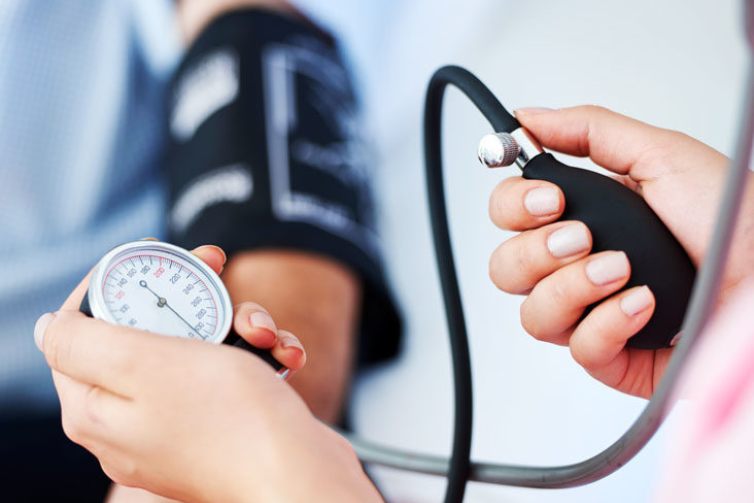High blood pressure is not just about salt; many hidden causes contribute to its rise. Added sugars, loneliness, sleep apnea, and low potassium intake can all elevate blood pressure, often silently. Acute pain and certain herbal supplements may also interfere with blood pressure regulation, while thyroid problems can alter heart function and vessel flexibility. Even simple factors like bladder fullness affect readings, emphasizing the importance of accurate monitoring. Recognizing and addressing these diverse influences, along with lifestyle changes and medical care, is essential for effective blood pressure management and reducing long-term cardiovascular risk.
The Larger Perspective
You’ve likely been advised to monitor your salt intake, particularly if you’re mindful of your blood pressure. Salt causes your body to retain water, which adds extra strain on your heart and blood vessels. However, salt isn’t the only factor that can elevate blood pressure—stress, anger, and other emotions can also contribute. While occasional blood pressure spikes aren’t usually harmful, consistently high levels over time can lead to significant health issues.
Added Sugar
Added sugar, particularly in processed forms like high-fructose corn syrup, may have an even more significant impact on raising blood pressure than salt. Diets high in added sugars are linked to noticeable increases in both systolic (the top number, representing pressure during a heartbeat) and diastolic (the bottom number, representing pressure between heartbeats) blood pressure. For example, drinking just one 24-ounce sugary soft drink can cause an average rise of 15 points in systolic pressure and 9 points in diastolic pressure.
Loneliness
Loneliness isn’t simply about how many friends you have—it’s about the sense of genuine connection. Feeling stressed or depressed doesn’t fully capture its impact. In fact, loneliness tends to worsen over time: a study showed that over four years, the systolic blood pressure of the loneliest participants increased by more than 14 points. Researchers believe this may be due to a constant fear of rejection and disappointment, along with heightened vigilance about personal safety and security, which can alter the body’s functioning.
Sleep Apnea
Individuals with sleep apnea face an increased risk of developing high blood pressure and other cardiovascular issues. During sleep, frequent interruptions in breathing trigger the nervous system to release chemicals that elevate blood pressure. Additionally, reduced oxygen levels can harm the walls of blood vessels, making it more difficult for the body to manage blood pressure effectively over time.
Insufficient Potassium Intake
Your kidneys rely on a proper balance between sodium and potassium to regulate the fluid levels in your bloodstream. This means that even if you follow a low-sodium diet, your blood pressure could remain high if you’re not consuming enough potassium-rich foods like fruits, vegetables, beans, low-fat dairy, or fish. While bananas are often seen as the classic potassium source, options like broccoli, water chestnuts, spinach, and other leafy greens are actually better choices—especially if you’re mindful of your weight.

Pain
Sudden or acute pain activates the nervous system and raises blood pressure. This response is noticeable when you immerse a hand in ice water, apply pressure to your cheek or fingernail, or experience a mild electric shock to your finger.
Herbal Supplements
Do you use herbal supplements like ginkgo, ginseng, guarana, ephedra, bitter orange, or St. John’s wort? These herbs can increase your blood pressure or interfere with how medications, including those for managing high blood pressure, work.
Thyroid Issues
When the thyroid gland produces insufficient thyroid hormone, your heart rate slows down, and your arteries become less flexible. Low hormone levels can also increase your LDL, or “bad” cholesterol, which contributes to artery stiffness. Blood then flows more quickly through these hardened vessels, exerting more pressure on their walls and raising your blood pressure. On the other hand, although less common, an excess of thyroid hormone can cause your heart to beat faster and more forcefully, which can also increase your blood pressure.

You Need to Pee
In a study of middle-aged women who hadn’t used the bathroom for at least three hours, systolic blood pressure increased by an average of about 4 points, and diastolic pressure rose by around 3 points. Similar effects were observed in men and women across different age groups. Since high blood pressure becomes more common with age, it’s essential to get accurate measurements. Keeping your bladder empty before checking your blood pressure might help ensure more precise readings.
FAQ’s
Can added sugar impact blood pressure more than salt?
Yes. High intake of added sugars, especially from processed foods and sugary drinks, can significantly raise both systolic and diastolic blood pressure, sometimes even more than salt.
How does loneliness affect blood pressure?
Loneliness can cause a gradual increase in blood pressure over time due to chronic stress, fear of rejection, and heightened vigilance, which negatively affect cardiovascular health.
Why is potassium important for blood pressure regulation?
Potassium helps balance sodium levels and regulates fluid in the bloodstream. Insufficient potassium intake can keep blood pressure high despite low sodium diets.
Can sleep apnea raise blood pressure?
Yes. Sleep apnea causes repeated breathing interruptions and lowers oxygen levels, triggering nervous system responses that increase blood pressure and damage blood vessel walls.
Do herbal supplements affect blood pressure?
Some herbal supplements like ginkgo, ginseng, and St. John’s wort can raise blood pressure or interfere with blood pressure medications, so caution is advised.
Conclusion
High blood pressure is influenced by a variety of less obvious factors beyond salt intake, including added sugars, loneliness, sleep apnea, potassium deficiency, and even pain or herbal supplements. Understanding these hidden causes can improve management and prevention strategies. Monitoring these factors, alongside lifestyle adjustments and medical advice, helps maintain healthier blood pressure levels and reduces the risk of serious cardiovascular problems. Awareness is key to better heart health.


